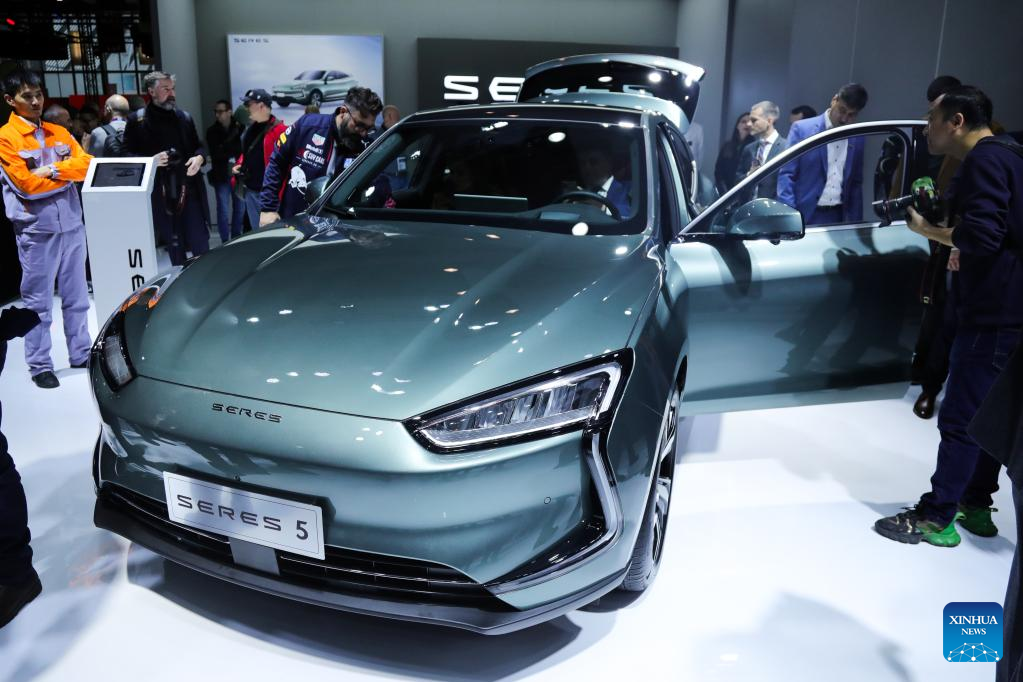
China’s EV Industry a Global Leader Despite Tariff Wars by the West » Capital News
The rise of China’s electric vehicle (EV) industry has sparked significant competition and strategic maneuvering on the global stage, particularly from Western countries. One of the primary tools that Western nations have employed to counter China’s growing influence in the EV sector is the imposition of tariffs.
The United States has been one of the most vocal and active in imposing tariffs on Chinese goods, including those related to the EV industry. During the Trump administration, a series of tariffs were levied on Chinese imports as part of a broader trade war. Tariffs were placed on a wide range of automotive parts and components, including those used in electric vehicles. Chinese-made electric vehicles also faced tariffs when entering the US market, intended to make Chinese EVs less competitive in terms of price.
On June 12, the European Commission announced provisional tariffs on Chinese electric vehicles, set to take effect on July 4. The European Union has imposed tariffs on certain Chinese automotive components, such as batteries and battery cells. Chinese carmakers have criticised the decision as unfair, asserting their support for free trade and fair competition. Despite these measures, export data indicates that Chinese electric cars remain competitive in the global market.
China’s EV industry has rapidly evolved into a global powerhouse, characterised by aggressive innovation, robust government support, and a burgeoning domestic market. The industry’s rise not only signifies China’s ambition to lead in the next generation of automotive technology but also reflects broader economic and environmental strategies.
The Chinese government has played a pivotal role in the development of the EV industry. Generous subsidies, tax incentives, and grants have lowered the cost of EV production and purchase, making them more accessible to the average consumer. Policies mandating a certain percentage of car sales to be electric and investments in research and development have also spurred growth. Moreover, the government’s push to build an extensive charging infrastructure has alleviated range anxiety, a common deterrent to EV adoption.
Chinese companies have made significant strides in EV technology, particularly in battery development. Firms like CATL and BYD are at the forefront of producing advanced lithium-ion batteries that offer longer range and shorter charging times. China’s focus on developing solid-state batteries, which promise even greater energy density and safety, indicates a forward-thinking approach that places it ahead of global competitors.
China is the largest automobile market in the world, and its domestic demand for EVs is substantial. The combination of urbanisation, rising middle-class incomes, and increasing environmental awareness has driven consumer interest in EVs. Additionally, air pollution concerns in major cities have encouraged citizens and authorities to embrace cleaner transportation options.
Chinese manufacturers benefit from economies of scale, allowing them to produce EVs at lower costs compared to their Western counterparts. This price competitiveness is crucial in both domestic and international markets, enabling Chinese EVs to penetrate new markets more effectively.
China’s dominance in the EV industry positions it as a leader in green technology, with significant implications for global efforts to combat climate change. By exporting affordable EVs and batteries, China is facilitating the transition to electric mobility worldwide, reducing global carbon emissions.
The rise of China’s EV industry represents a broader economic shift from traditional manufacturing to high-tech industries. This transition has enhanced China’s economic resilience and global influence, particularly in technology-driven sectors.
The success of Chinese EVs exerts competitive pressure on traditional automakers in Europe, the US, and Japan. Companies like Tesla have already responded by expanding production in China, while others are ramping up their EV offerings to stay competitive. This competition can drive innovation and lower costs globally, benefiting consumers and accelerating the adoption of EVs.
China’s ascent in the EV industry also has geopolitical ramifications. It underscores the country’s growing technological prowess and economic clout, which is shifting the balance of power. However, the EV industry’s reliance on critical materials like lithium, cobalt, and rare earth elements exposes the country to geopolitical risks and supply chain disruptions. China controls a significant portion of the global supply of these materials, but international competition and resource nationalism could pose challenges.
China’s electric vehicle industry stands as a testament to the nation’s strategic foresight, technological ambition, and market potential. While challenges remain, the strengths of the industry are likely to sustain its growth and enhance its global impact. As China continues to innovate and expand its EV market, it will play a crucial role in shaping the future of transportation and addressing climate change. The world will watch closely as China drives forward, setting new standards and redefining the automotive landscape.
